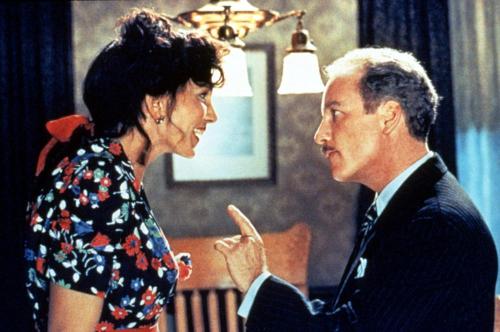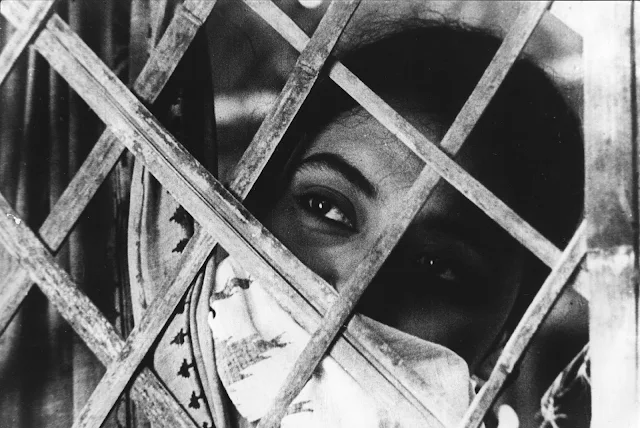 |
| Christopher Lee in The Wicker Man |
A blog formerly known as Bookishness / By Charles Matthews
"Dazzled by so many and such marvelous inventions, the people of Macondo ... became indignant over the living images that the prosperous merchant Bruno Crespi projected in the theater with the lion-head ticket windows, for a character who had died and was buried in one film and for whose misfortune tears had been shed would reappear alive and transformed into an Arab in the next one. The audience, who had paid two cents apiece to share the difficulties of the actors, would not tolerate that outlandish fraud and they broke up the seats. The mayor, at the urging of Bruno Crespi, explained in a proclamation that the cinema was a machine of illusions that did not merit the emotional outbursts of the audience. With that discouraging explanation many ... decided not to return to the movies, considering that they already had too many troubles of their own to weep over the acted-out misfortunes of imaginary beings."--Gabriel García Márquez, One Hundred Years of Solitude
Search This Blog
Friday, December 18, 2020
The Wicker Man (Robin Hardy, 1973)
Thursday, December 17, 2020
Sidewalk Stories (Charles Lane, 1989)
 |
| Charles Lane and Nicole Alysia in Sidewalk Stories |
Cast: Charles Lane, Nicole Alysia, Sandye Wilson, Trula Hoosier, Darnell Williams. Screenplay: Charles Lane. Cinematography: Bill Dill. Production design: Ina Mayhew. Film editing: Charles Lane, Ann Stein. Music: Marc Marder.
A low-budget independent classic, with writer-director-producer-editor as a homeless man who, like Charles Chaplin's Tramp in The Kid (1921), gets encumbered with a small child. It's a smart blend of neorealism and sentiment that gets its impetus not only from Chaplin's movie but also from Vittorio De Sica's Bicycle Thieves (1948). The movie is silent until the very end, when its message about homelessness is verbalized.
Island of Lost Souls (Erle C. Kenton, 1932)
 |
| Charles Laughton in Island of Lost Souls |
Tuesday, December 15, 2020
Lost in Yonkers (Martha Coolidge, 1993)
 |
| Mercedes Ruehl and Richard Dreyfuss in Lost in Yonkers |
Cast: Mercedes Ruehl, Richard Dreyfuss, Irene Worth, Brad Stoll, Mark Damus, David Strathairn, Robert Miranda, Jack Laufer, Susan Merson, Illya Haase. Screenplay: Neil Simon, based on his play. Cinematography: Johnny E. Jensen. Production design: David Chapman. Film editing: Steven Cohen. Music: Elmer Bernstein.
Céline and Julie Go Boating (Jacques Rivette, 1974)
 |
| Dominique Labourier and Juliet Berto in Céline and Julie Go Boating |
Cast: Juliet Berto, Dominique Labourier, Bulle Ogier, Marie-France Pisier, Barbet Schroeder, Nathalie Asnar, Marie-Thérèse Saussure, Philippe Clévenot. Screenplay: Juliet Berto, Dominique Labourier, Bulle Ogier, Marie-France Pisier, Jacques Rivette, Eduardo de Gregorio, based in part on stories by Henry James. Cinematography: Jacques Renard. Film editing: Nicole Lubtchansky. Music: Jean-Marie Sénia.
Monday, December 14, 2020
Dos Monjes (Juan Bustillo Oro, 1934)
 |
| Victor Urruchúa in Dos Monjes |
Cast: Victor Urruchúa, Carlos Villatoro, Magda Haller, Beltrán de Heredia, Emma Roldán. Screenplay: Juan Bustillo Oro, José Manuel Cordero. Cinematography: Agustín Jiménez. Production design: Mariano Rodríguez Granada, Carlos Toussaint. Film editing: Juan Bustillo Oro. Music: Max Urban.
Sunday, December 13, 2020
The Cloud-Capped Star (Ritwik Ghatak, 1960)
 |
| Supriya Choudhury in The Cloud-Capped Star |
Cast: Supriya Choudhury, Anil Chatterjee, Bijon Bhattacharya, Gita Dey, Gita Ghatak, Dwiju Bhawal, Niranjan Ray. Screenplay: Ritwik Ghatak, Samiran Dutta, Shaktipada Rajguru. Cinematography: Dinen Gupta. Production design: Ravi Chatterjee. Film editing: Ramesh Joshi. Music: Jyotirindra Moitra.
Tuesday, November 10, 2020
Where the Sidewalk Ends (Otto Preminger, 1950)
 |
| Dana Andrews and Gene Tierney in Where the Sidewalk Ends |
In Where the Sidewalk Ends, Dana Andrews plays Mark Dixon, a tough cop who's just a little too eager to rough up the suspects, and he starts the film by getting demoted for it That barely fazes him, however: When he's called on to interview Ken Paine (Craig Stevens), a suspect in a murder that's just been committed, Paine fights back and Dixon punches him out. Unfortunately, Paine had a severe head injury in the war, and he dies. Dixon's attempts to cover up only make things worse, leading to a snarl of consequences that form the plot of this darkly entertaining crime drama. What elevates Where the Sidewalk Ends into more than routine is mostly Ben Hecht's richly slangy, cynical dialogue and Otto Preminger's smooth direction. It helps, too, that Preminger is working with people who made his Laura (1944) one of the classics of Hollywood film: Andrews, of course, who even shares the name Mark with his cop counterpart in Laura, Gene Tierney as another leading lady with a lousy taste in men, and cinematographer Joseph LaShelle, who won an Oscar for the earlier movie. Laura was, however, almost baroque in contrast with the tight, spare Where the Sidewalk Ends, which depends on Hecht's skill at crafting tough talk to overcome some of the story's reliance on pop psychology: Dixon, it seems, developed his sadistic approach to police work because he hated his father, who was a hoodlum gunned down by the cops. The film ends on a nicely unresolved note after Dixon admits to killing Paine and trying to cover it up at the same time that he's being honored for bringing mobster Tommy Scalise (Gary Merrill) to justice.
Monday, November 9, 2020
Blind Alley (Charles Vidor, 1939)

Cast: Chester Morris, Ralph Bellamy, Ann Dvorak, Joan Perry, Melville Cooper, Rose Stradner, John Eldredge, Ann Doran, Marc Lawrence, Stanley Brown, Scotty Beckett, Milburn Stone, Marie Blake. Screenplay: Philip MacDonald, Michael Blankfort, Albert Duffy, based on a play by James Warwick. Cinematography: Lucien Ballard. Art direction: Lionel Banks. Film editing: Otto Meyer. Music: George Parrish.
Blind Alley has a familiar setup: a killer on the run from the cops takes a family hostage in their own home. Chester Morris plays the killer, Hal Wilson, who moves in on the Shelby household, whose head is a college professor and psychiatrist played by Ralph Bellamy. Wilson, it turns out, is a psychopath, plagued by a recurrent dream, and Dr. Shelby sees the opportunity to disarm him by using the tools of psychotherapy. It works, sort of, in a rather too simplistic fashion, as the shrink decodes the symbolism of Wilson's dream as a traumatic event from his childhood that the killer has been repressing. The movie is a little stagy, as any adaptation of a play to screen is likely to be, but it's tidy enough in its storytelling that I didn't mind the obvious curtain lines and creaky attempts to "open out" the action -- for example, by visualizing the contents of Wilson's nightmare. It's nice to see Bellamy playing something other than a stooge for Cary Grant, as he did so memorably in The Awful Truth (Leo McCarey, 1937) and His Girl Friday (Howard Hawks, 1941). Morris is given to chewing the scenery but Ann Dvorak is good as his moll, Mary, who knows how to handle him well enough that Shelby can work his cure. The movie is sometimes cited as one of the first films noir, which only shows how flexible any definition of that genre has to be.
Sunday, November 8, 2020
Beau Travail (Claire Denis, 1999)

Cast: Denis Lavant, Michel Subor, Grégoire Colin, Richard Courcet, Nicolas Devauchelle, Adiatou Massudi, Mickael Ravovski, Dan Herzberg, Giuseppe Molino, Gianfranco Poddighe, Marc Veh, Thong Duy Nguyen, Jean-Yves Vivet, Bernardo Montet, Dimitri Tsiapkinis, Djanel Zemali, Abdelkader Bouti. Screenplay: Claire Denis, Jean-Pol Fargeau, based on a novella by Herman Melville. Cinematography: Agnès Godard. Production design: Arnaud de Moleron. Film editing: Nelly Quettier. Music: Charles-Henri de Pierrefeu, Eran Zur.
Claire Denis's Beau Travail doesn't really have much in common with Kathryn Bigelow's Point Break (1991). Bigelow's film is pure pulp movie action thriller material, whereas Denis's is thoughtfully derived from a literary classic, Herman Melville's Billy Budd. But both films are directed by women with a keenly objective eye toward male display, the acting-out of testosterone-driven urges, a vision that gives these movies a special erotic charge. It might be worth bringing in a third film for consideration here: Rainer Werner Fassbinder's Querelle (1982), a film made by a gay man that, like Denis's, also contains overtones of Billy Budd. But where Fassbinder's movie feels overheated, even campy, Denis's film, for all its intensity, has a coolness to it. I think that sometimes Denis, for all the scenes of barechested Legionnaires working out intensely, even intimately in the desert sun, is more restrained than she might be. The central conflict of her film, between Galoup (Denis Lavant), the movie's Claggart equivalent, and Sentain (Grégoire Colin), the Billy Budd of the movie, is fragmented in Denis's telling. All of the film's Legionnaires are handsome, so that Sentain doesn't stand out immediately from the group the way Melville's Billy does. The development of Galoup's jealous antipathy is subtly handled, mostly by casting the story as a flashback by Galoup after being court-martialed and expelled from the Legion -- this Claggart doesn't die. Neither, for that matter, does this Billy Budd, although he comes closer to it. But Beau Travail is still something like a great movie, maybe because Denis's avoidance of melodramatic excess and narrative hand-holding leaves it up to the viewer to draw inferences about motives and behavior. The film gets a great boost from Agnès Godard's hungry cinematography, a score that includes excerpts from another version of Billy Budd, Benjamin Britten's opera, and most especially from the Legionnaires' training routines, choreographed by Bernardo Montet.